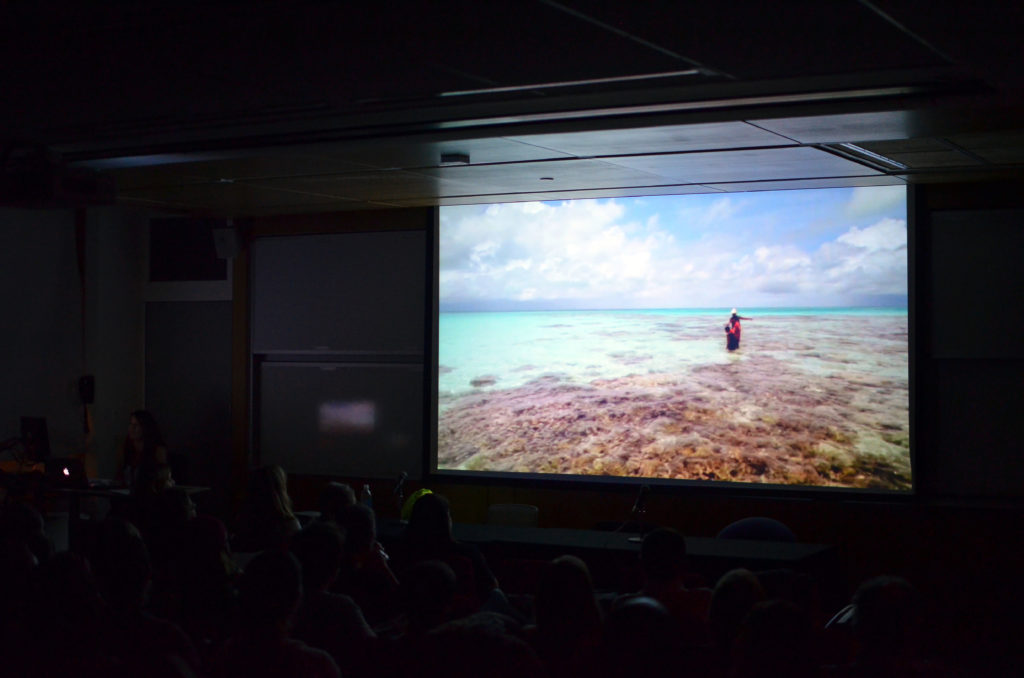By Naomi Stapleton, news correspondent
Northeastern University’s Marine Biology Club hosted a screening of several documentaries about ocean conservation issues on Thursday, March 31, as part of a Beneath the Waves film festival on campus.
With help from the Husky Environmental Action Team, the Biology Club and the TERRA Society, club members chose seven short films to feature during the two-hour event. Each film centered around one of two themes: Human impact or marine research. After showing each theme’s selection of films, a panel of marine science experts discussed the implications of climate change and marine research.
“When you look at the projected scenarios [of climate change], it’s not a matter of if. It’s a matter of when,” said Geoffrey Trussell, the panel moderator and director of the Northeastern University Marine Science Center (MSC).
Films in the “human impact” category highlighted urgent environmental concerns like rising sea levels which are submerging the island nation of Kiribati. The second group of films showed several innovative approaches to marine science research like the Biosphere 2, an artificial ecological system with a 7,000-gallon ocean.
Senior environmental science major Kelsi Furman, the Marine Biology Club’s president, felt the night flowed nicely from a potentially alarming message about climate change to a more reassuring presentation of ongoing marine research.
“Yes, a lot of the field [of marine science] is doom and gloom, but there is also a light at the end of the tunnel,” Furman said. “There are people who care about this and who are working to fix this. That was a good takeaway from the night.”
Beneath the Waves is a non-profit organization that promotes ocean conservation, education and discovery that Northeastern alumnus Dr. Austin Gallagher launched in 2009. The team provides documentaries for satellite film festivals to screen along with a local panel discussion.
The panelists represented a range of careers within marine science, including educators, scientists and public policymakers. They analyzed the films and discussed key issues facing marine conservation efforts, including struggles by scientists to communicate with the public.
Trussell said that, in general, scientists have improved in communicating and relating to audiences, but he is concerned that young scientists often become too preoccupied with style rather than fact.
“There is an intoxicating effect of going in front of an audience […] and being compelling and famous or important, and that in turn translates into feeding that beast, rather than feeding the knowledge beast,” Trussell said. “I’m hoping that we come to a good balance where academics are able to communicate effectively, are able to connect with different groups, different generations and so forth, yet still have that substance.”
The MSC has hosted similar film festivals in previous years, but Carole McCauley, the center’s outreach program coordinator, said the team thought an on-campus event hosted by young leaders in marine biology would attract a broader audience.
“The public has a right to understand the impact and the benefits of this [scientific] knowledge that they, as taxpayers, are investing in, or that the media is talking about,” McCauley said. “If the scientists can’t tell us who cares and why it’s important, then that presents a problem.”
Photo by Robert Smith









